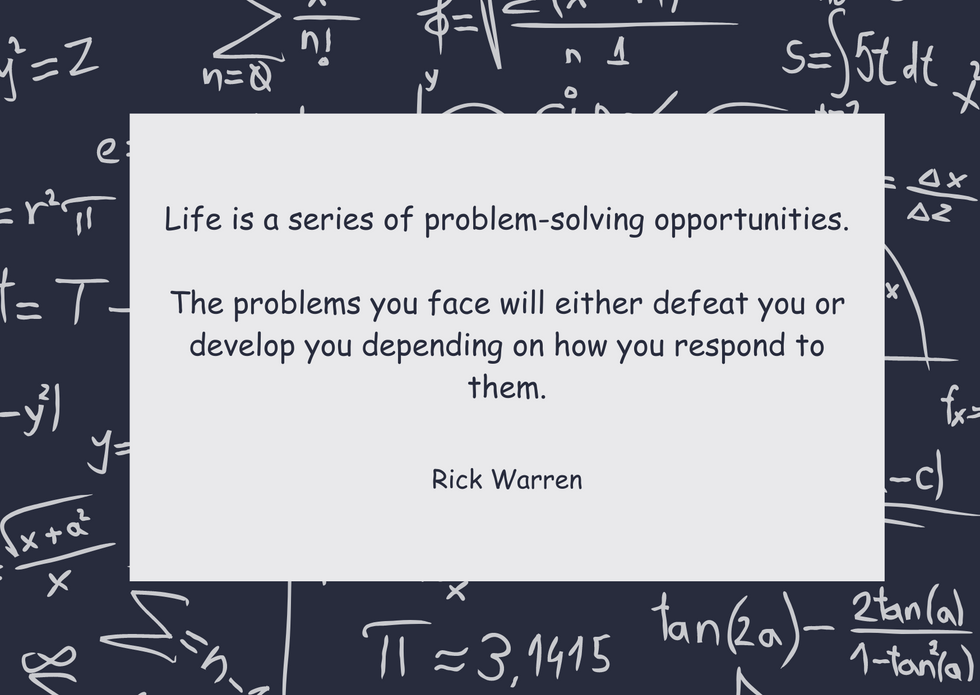
Congratulations, recent college grad! You’ve worked hard to get that degree and should be incredibly proud of your accomplishments. However, we know it can be easy to feel overwhelmed as a recent graduate, especially when you’re navigating the job search.
That being said, we all need a little inspiration once in a while when we’re applying for jobs and trying to decide which path is the right one.
Here are some great inspirational quotes recent college grads can turn to if they’re feeling discouraged by the job search process.
“It’s not whether you get knocked down, it’s whether you get up.” âVince Lombardi
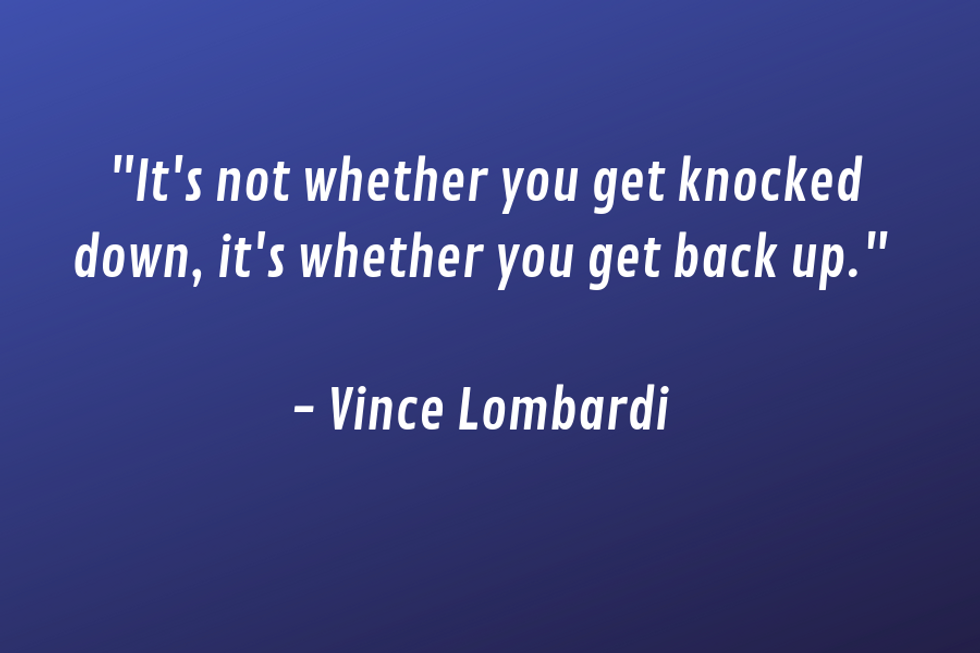
As a recent college grad, you’ll probably apply for quite a few jobs. There’s a good chance that not all of these jobs will get back to you and request an interview.
Rejection is a part of the job search, and it’s something everyone goes through. The key thing to remember here is that you have to bounce back after getting rejected.
Does getting rejected sting? Of course. However, it’s how you react to getting rejected that will define how the rest of your job search goes.
“The best preparation for tomorrow is doing your best today.”  âH. Jackson Brown, Jr.

Trust us, you aren’t doing yourself any favors by procrastinating your job search. Put your best foot forward in your job search, starting today. Need to clean up that resume? Do it now. Is your LinkedIn profile incomplete? Fix it up today!
By doing the very best you can do today, you help prepare yourself for a better tomorrow.
For example, if you fix up your resume and cover letter today, and your dream job pops up tomorrow, you’ll be ready to apply with the best materials at your fingertips.
You never know when these big opportunities will come up, so it’s crucial for you to always be prepared to showcase your amazing skills.
“Nothing is impossible, the word itself says ‘I’m Possible!'” âAudrey Hepburn
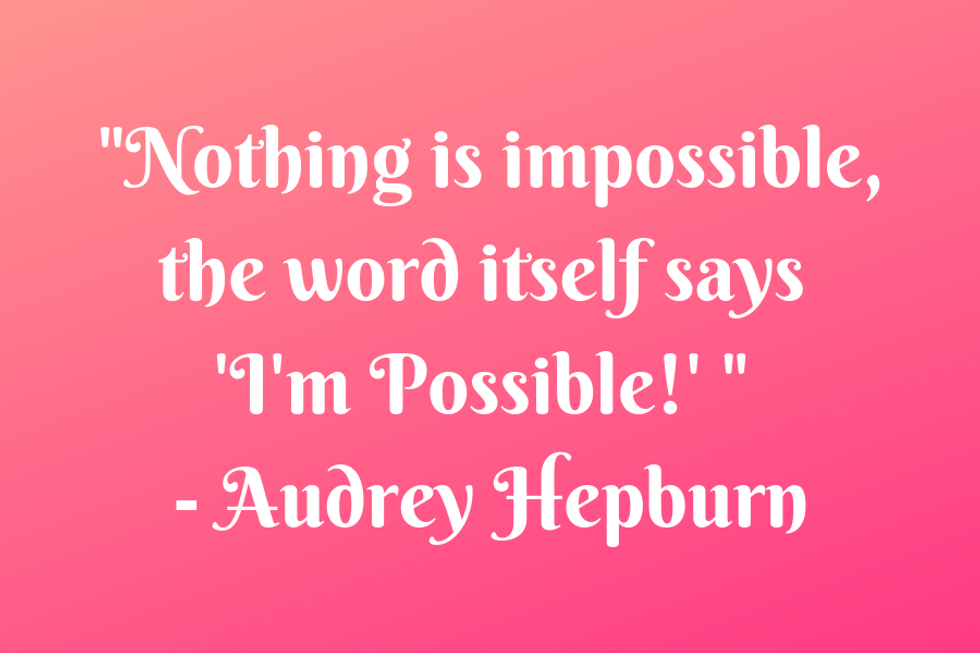
The sky is truly the limit when it comes to what you can do as a recent college graduate.
You may think it’s impossible to launch your own startup or apply for your international dream job, but the truth is that you can do anything you set your mind to.
Now we’re not saying it’ll be easy. There will definitely be times you want to drop everything and give up. However, it’s crucial that you keep your goals in mind, and do whatever you can to achieve them.
Believe in yourself and what you’re capable of doing. You made it through college, after allâthat’s a huge accomplishment, and it proves that you can set a big goal and achieve it.
“You are always free to change your mind and choose a different future, or a different past.” âRichard Bach

Here’s the thing about career, and life in general: It’s unpredictable.
What you want at age 22 may not be the same thing you want at age 30. And that’s okay.
You have the right to change careers at any point in your life. Think about it: We usually spend 40 (or more) hours per week at work. That’s a lot of time. So if you aren’t enjoying what you’re doing during that time, why wouldn’t you change it?
If you decide down the line that the career you chose to pursue isn’t for you anymore, it’s okay to switch gears and go after new opportunities.
“Just don’t give up trying to do what you really want to do. Where there is love and inspiration, I don’t think you can go wrong.” âElla Fitzgerald

Think about your college major. Why did you choose that specific one? If you have a passion for something and you know it makes you happy, then pursue it.
At the end of the day, you’re the one who is building a life you love, and part of that life will be your career. Do something that makes you happy and inspires you, and the rest will fall into place.
“Life is 10% what happens to you and 90% how you react to it.” âCharles R. Swindoll
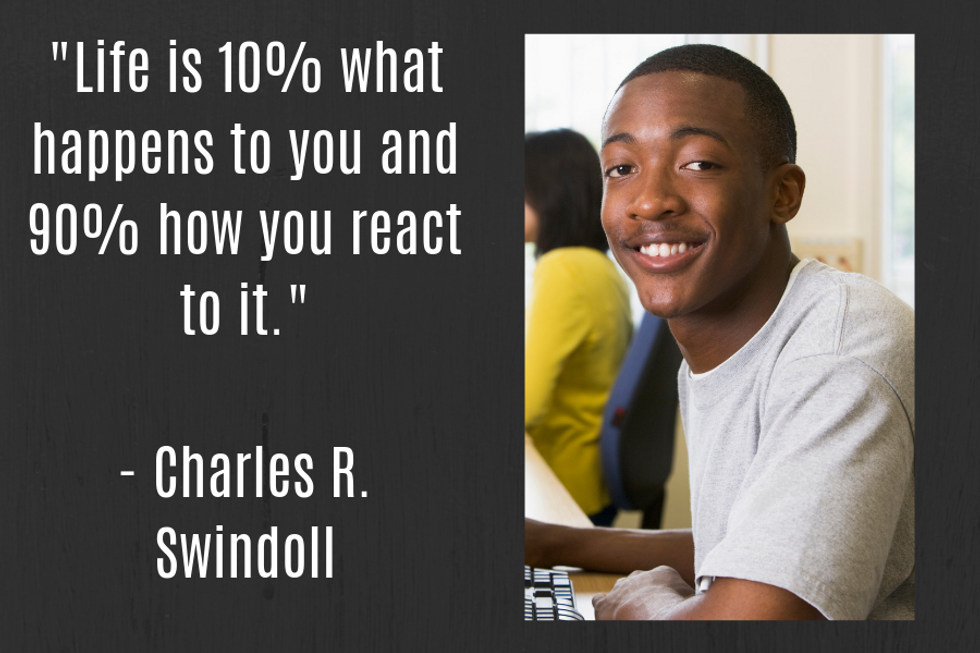
Things you may not like will happen throughout your career. You may not get a callback for your dream job, you may be let go, or you may get passed up for a promotion. You can’t control these things, but you can control how you react to them.
It’s how you respond to these situations that will define who you are as a working professional. Are you going to dwell on what happened, or are you going to grow from it?
“The secret of getting ahead is getting started.” âMark Twain
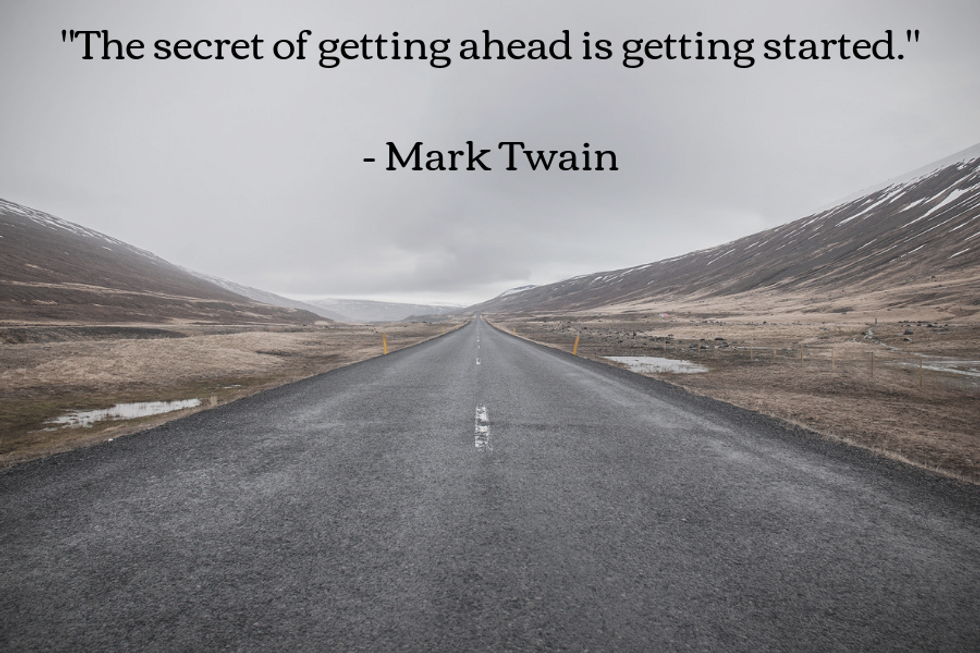
Everyone has to start somewhere in their career.
As a recent college grad, you may be thinking of ways you can get ahead at work, especially if you’re in an entry-level position. However, remember that Rome wasn’t built in a dayâand your career won’t be built in a day, either. You’re just starting out, so give yourself a break.
Sometimes the hardest step to take is the first one. But once you do take that first step, it’ll be well worth it.
“Quality is not an act, it is a habit.” Â âAristotle
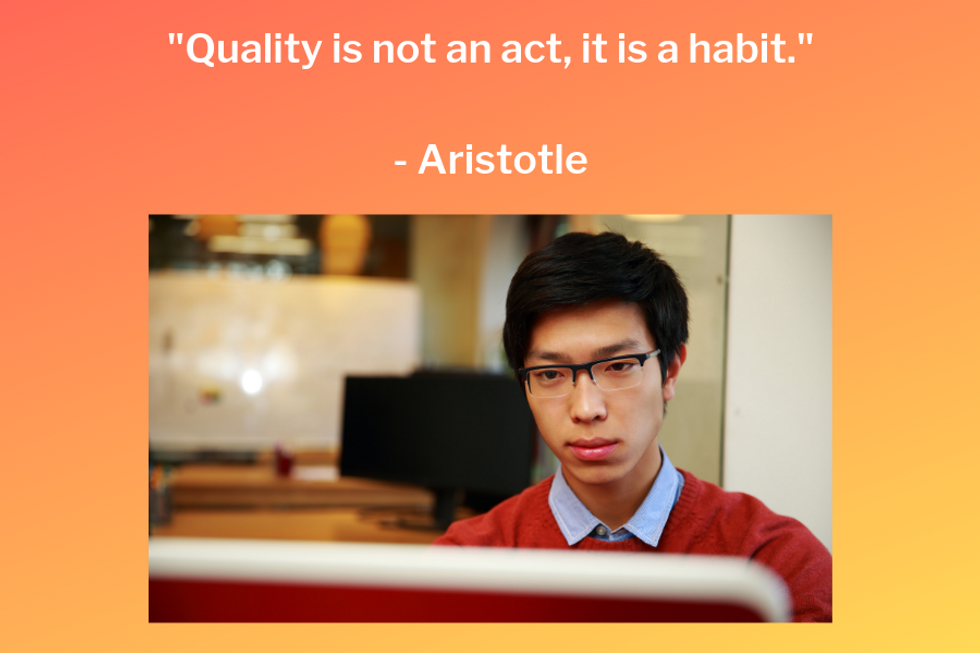
When you’re just starting out in your career, it’s important to build habits that will set you up for success. No matter what you do in your career, you should always strive to give it your all and put your best foot forward.
Doing the best you can every single day on the job will help you add tremendous value to your company. Plus, getting a great reputation as a quality worker will help boost your personal brand.
So if you’re just starting out, do yourself a favor and pay extra attention to the habits you’re building. They will create a solid foundation for you to build your career success.
“The most effective way to do it, is to do it.”  âAmelia Earhart

It can be really easy to get intimidated in the job search, and even when you land your first job out of college. There may be obstacles or projects thrown your way that you have never dealt with before, and you may not be sure how to handle them. This quote says it all. The most effective way to do something is to go ahead and just do it.
Want to apply to that dream job? Do it. Want to pitch a brand new project at work? Do it!
You’re not going to get anywhere if you stand idly by. Be proactive and go after what you want.
“I attribute my success to thisâI never gave or took any excuse.” âFlorence Nightingale
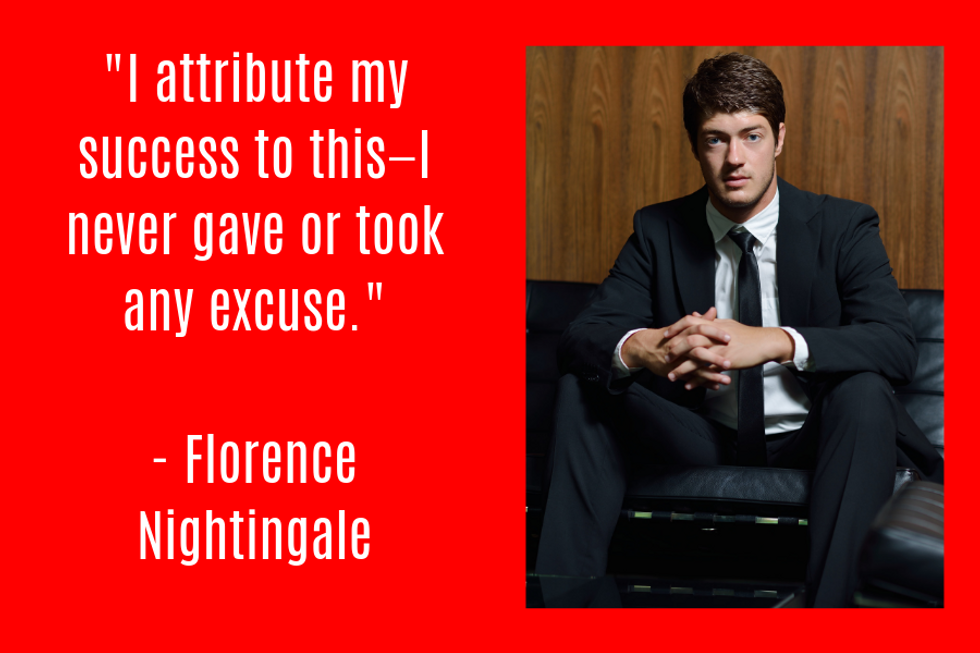
This quote is simple but highly effective. It can be really easy to come up with excuses as to why you’re not meeting your goals. However, it’s important that you don’t give excuses and hold yourself accountable during the early stages of your career.
Also, don’t be afraid to not take the excuses that may come your way. If you know something needs to be done, and it’s not getting done, hold others accountable for their actions.
Recent college grads may be intimidated when entering the job search, but it isn’t as scary as some may think. With the right preparation, college grads can enter the workforce confident and ready to take on any career challenge they may face.
Need Help Landing Your First Job Out Of College?
Download the My First Job Workbook to learn how to use your personality and passion to get hired. It’s the best free resource you’ll use in your job searchâand the only one you need to land your first job.















